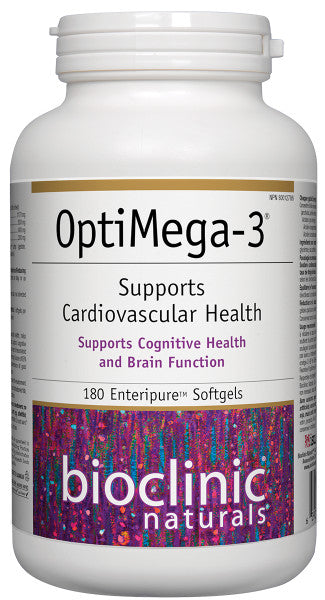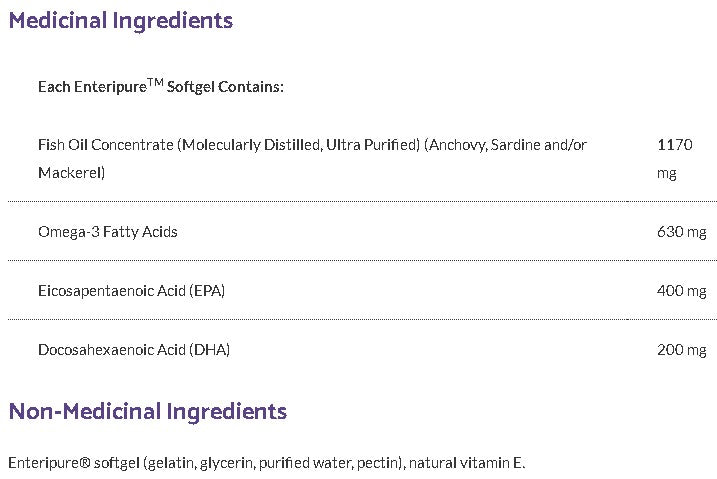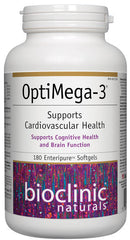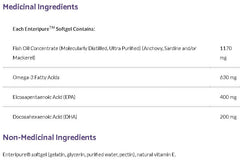



OptiMega-3® EPA 400 mg · DHA 200 mg
- 39.99$
0.00$- 39.99$
- Unit price
- per
Description
x- Optimal 2:1 ratio of EPA to DHA in a highly bioavailable softgel
- Pharmaceutical grade omega-3 fish oil blend, verified for quality and consistency by USP
- Free from lipid peroxides and environmental pollutants, including heavy metals, pesticides, dioxins, PCBs and other harmful compounds.
- Harvested using sustainable fishing practices
- Sourced from wild anchovies, sardines and/or mackerel, one of the best natural sources of EPA and DHA.
Omega-3 fatty acids in fish oil improve several cardiovascular risk factors, including decreasing atherosclerotic burden, reducing triglyceride levels and blood pressure, and improving platelet and vascular function. Not only do these fatty acids modulate risk factors, but controlled clinical trials have shown them to be effective in preventing cardiovascular and coronary events, particularly in high-risk individuals.
EPA and DHA also support cognitive function through multiple mechanisms, as they are essential for neuronal membranes, lower levels of which have been shown to be not only a marker of neurological disease but also a risk factor for cognitive impairment. EPA and DHA are essential for the resolution of inflammatory processes, providing substrates for the anti-inflammatory prostaglandins, resolvins, and protectins.
Benefits have also been demonstrated for improving overall health, including a wide variety of cardiovascular, inflammatory, and autoimmune conditions, ranging from cardiac arrhythmias, eczema, and inflammatory bowel disease, to pregnancy and breastfeeding support, rheumatoid arthritis, and neurodegenerative diseases. Meta-analyses of randomized trials have found that supplementation improved lipids and HbA1c and reduced proteinuria in diabetics, and improved insulin sensitivity in people with at least one symptom of a metabolic disorder.
Produits recommandés
Produits récemment consultés
- Choosing a selection results in a full page refresh.



